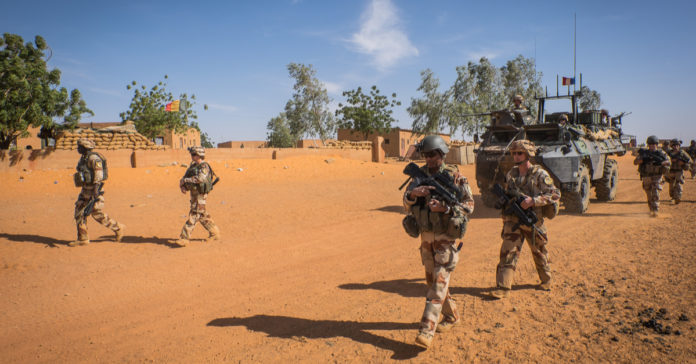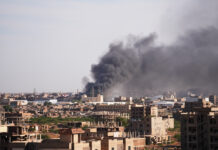The United Nations has concluded that the French military killed 19 civilians and 3 “insurgents” at a wedding party in Mali in January.
In a statement, the UN peacekeeping mission in Mali (MINUSMA) concluded that a January 3 French military airstrike on the central Malian village of Bounty hit a group largely made up of civilians.
The day after the attack, a MINUSMA fact-finding team, made up of 15 human rights officers and supported by two UN forensics experts and two public information officers, was deployed to investigate the strike and shed light on the allegations surrounding the deaths.
As part of their investigation, the team organised at least 115 face-to-face interviews, spoke to at least 200 people during group meetings, and carried out more than a hundred telephone interviews.
The experts also studied at least 150 documents, including official statements and news articles, as well as photographs and videos related to the Bounty strike.
On January 25 the team travelled to Bounty and visited the location of the airstrike, and the alleged burial site of those killed.
The MINUSMA investigators were able to confirm reports that a wedding celebration was hit by the French airstrike and that some hundred civilians were present, as well as five armed insurgents, presumed to be members of the Katiba Serma group.
Subscribe to our newsletter and stay updated on the latest news and updates from around the Muslim world!

“At least 22 people, including three of the suspected Katiba Serma members present at the gathering place, were killed by the Barkhane Force [French military] strike on January 3, 2021 in Bounty,” the UN said. “19 were directly affected by the strike, including 16 civilians, while the other three civilians died of their injuries during their transfer for emergency treatment. At least eight other civilians were injured in the strike. The victims are all men aged 23 to 71, the majority of whom lived in the village of Bounty.”
Based on the findings of the investigators, MINUSMA has recommended that the Malian and French authorities conduct “an independent, credible and transparent investigation” to investigate the circumstances of the strike, its impact on the civilian population of Bounty, and possible violations of international humanitarian and human rights law.
The French government, in a January 7 statement, claimed that their Mirage 3000 fighter planes had killed some 30 armed Islamist fighters, north of Bounty.
And since the UN report was published France has repeatedly dismissed it as not credible, claiming 30 people died in the Mali airstrike and that the targets were all jihadists. The UN report may have relied on testimony from terrorist sympathisers, it said, and did not offer any tangible proof.
France’s defence minister, Florence Parly, said last week its operations followed “a rigorous targeting process” and that amid criticism, it “cannot allow the honour of our soldiers to be sullied.”
“There were no women or children among the victims, and these strikes were intended to neutralise terrorist elements,” she said.
The government has dismissed calls for an investigation into the killings, or for it to release drone footage that led to the village being identified as a target.
There has also been a lack of criticism from of the Malian military-led transition government which came to power after a coup last year. Officials have largely supported France on which it relies on to support its own forces. Mali’s authorities have said jihadists were the target of the attack.
Groups representing families of the victims, survivors of the airstrike, and rights groups have called for military personnel implicated in the strike to be face charges.
In an attempt to get France to accept accountability, the families of the victims are considering legal action in French courts.




















